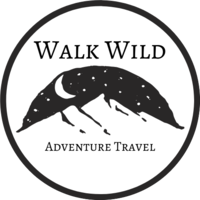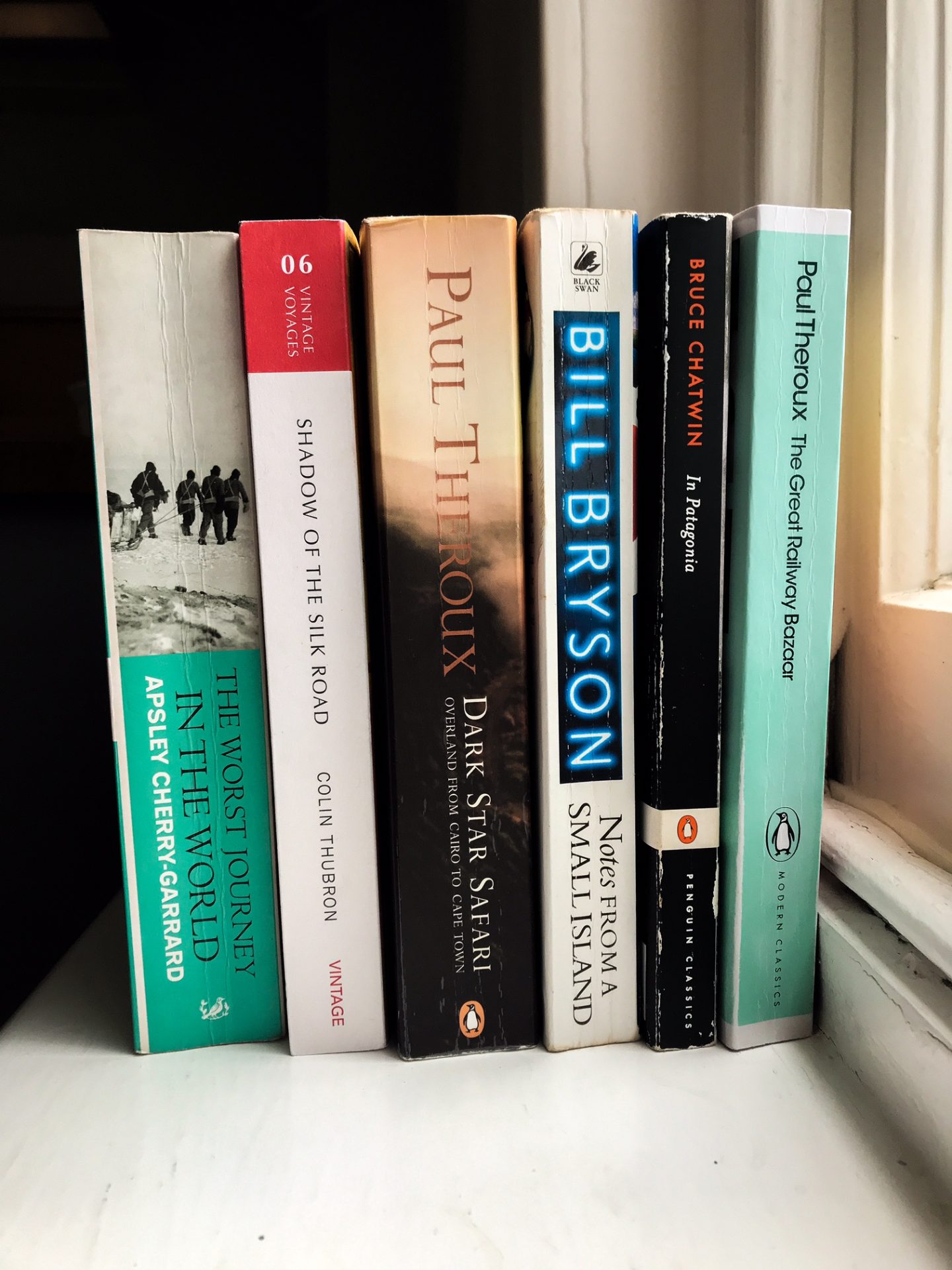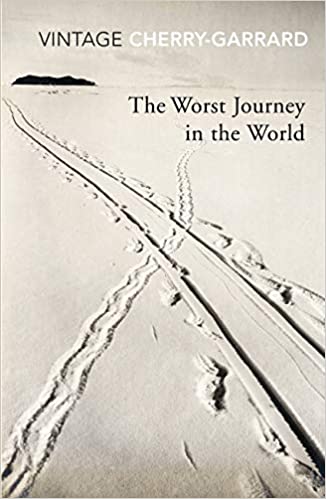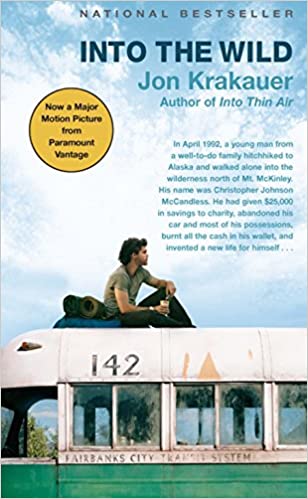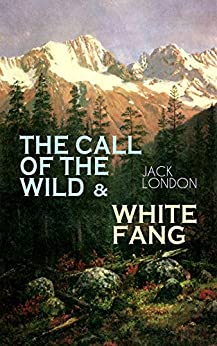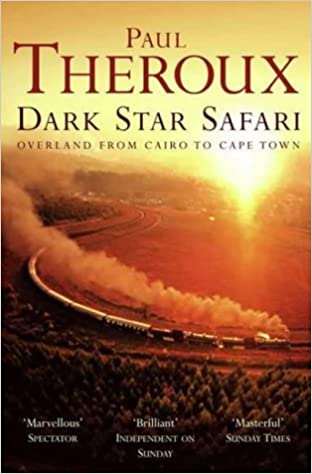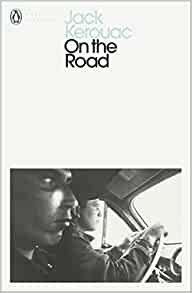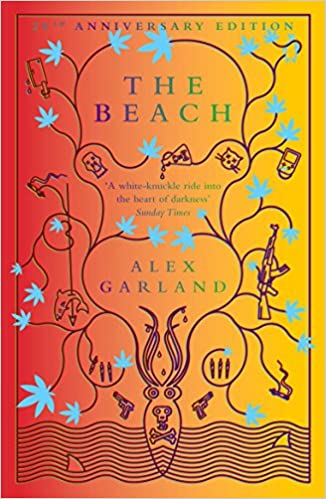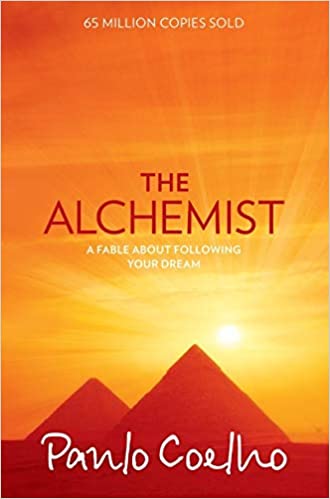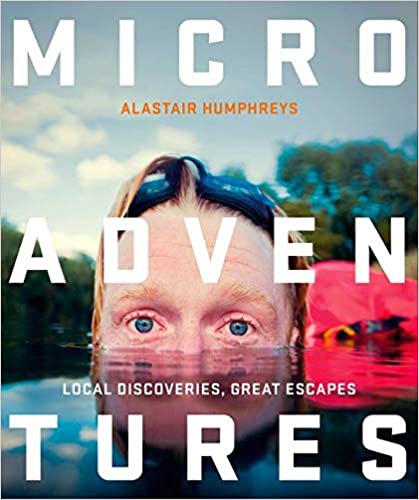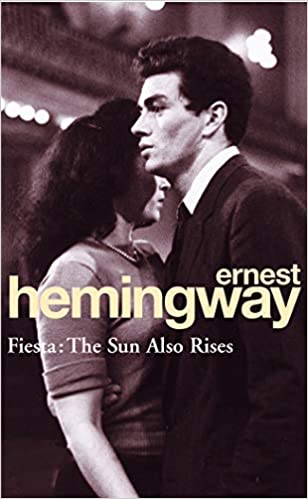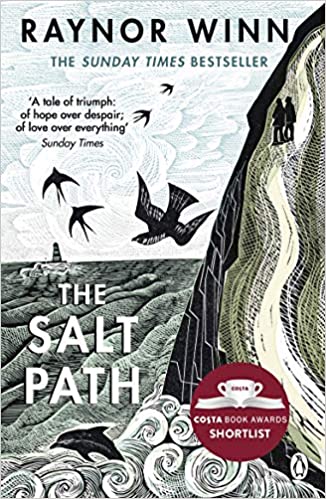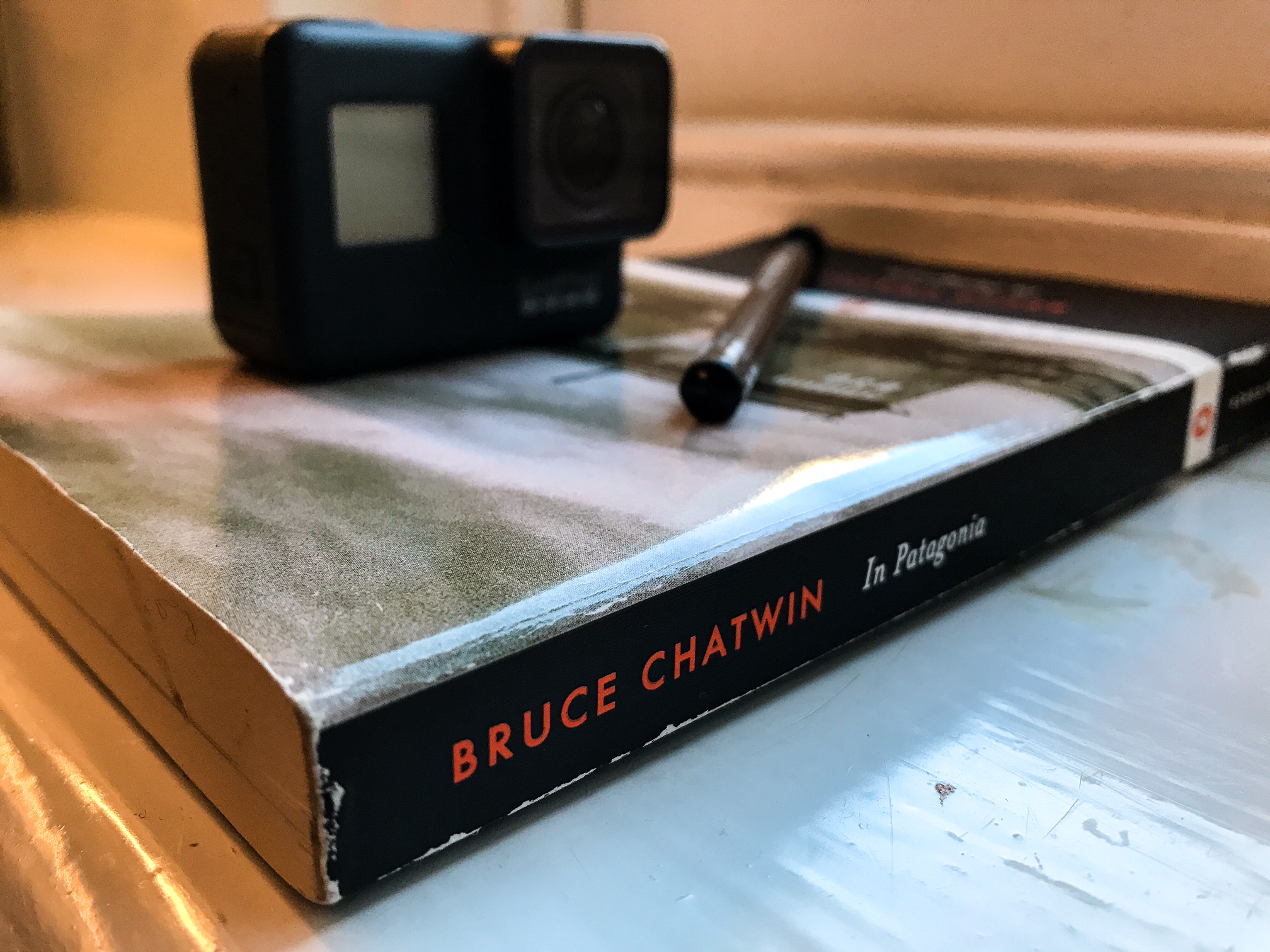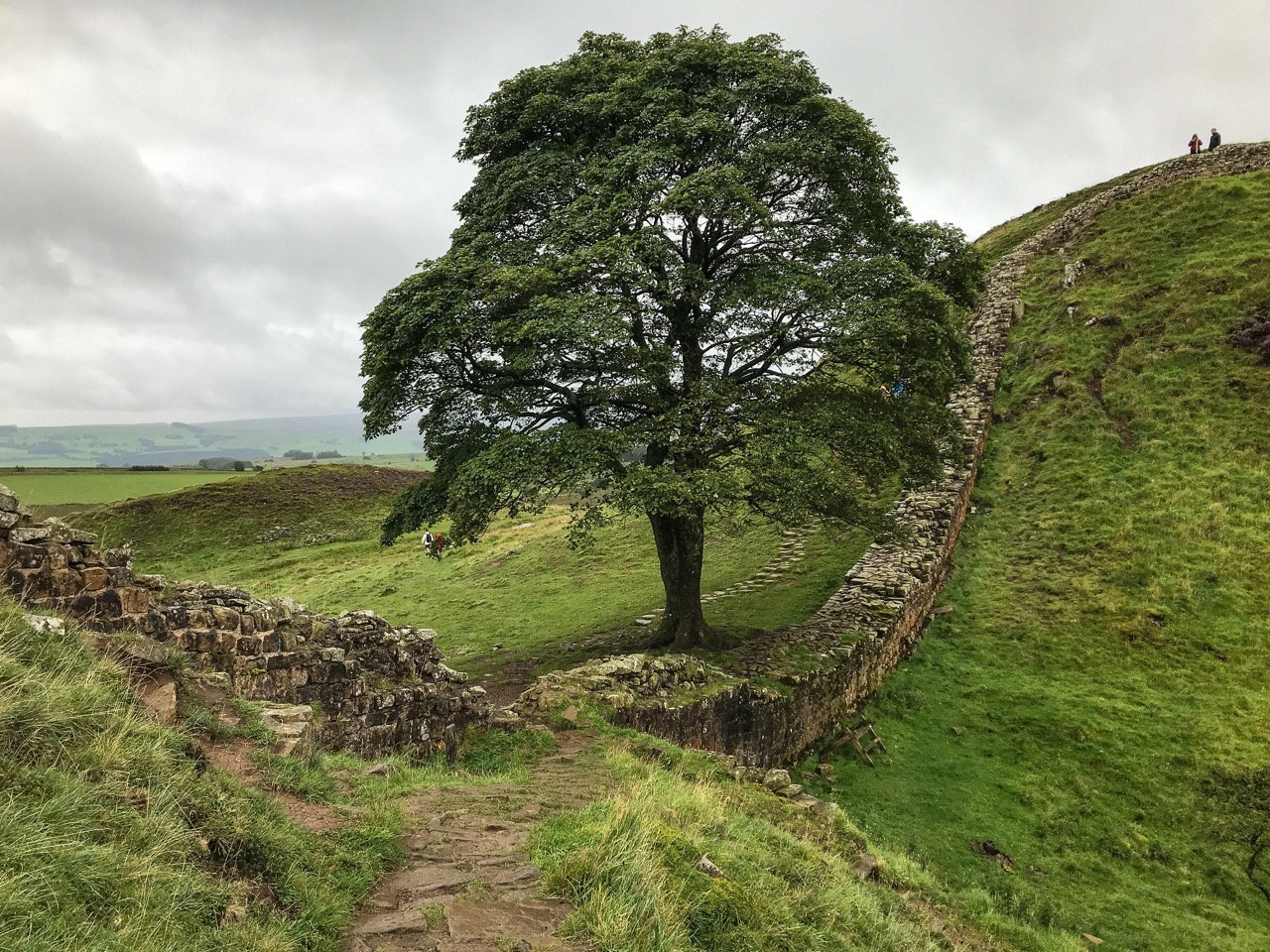My Favourite Adventure Travel Books (Fiction & Non-Fiction)
5 Minute Read
What better way to inspire your adventures than to read the incredible stories of those who have done it first. Adventure travel books can be fiction or non-fiction – either genre, they’re both worth reading. Some of my favourite books fall into each category, so I thought I’d combine them into a list of 10 of my favourites.
These books are a range of sub-genres, written in different eras, different countries, and from different viewpoints. I found my love for them in different ways but there was one unifying theme. They all involved some form of adventure or travelling.
And if you enjoy this list, here are 5 more of the best adventure travel books of all time.
My 10 favourite adventure travel books:
- The Worst Journey in the World by Apsley Cherry-Garrard
- Into the Wild by Jon Krakauer
- The Call of the Wild by Jack London
- Dark Star Safari by Paul Theroux
- On the Road by Jack Kerouac
- The Beach by Alex Garland
- The Alchemist by Paulo Coelho
- Microadventures by Alastair Humphreys
- The Sun Also Rises by Ernest Hemingway
- The Salt Path by Raynor Winn
This page contains affiliate links. This means I make a commission if you buy a product I have recommended (at no extra cost to you). All recommendations I give are genuine and my own. Thanks for the support!
See also:
How to Read a Book a Week
6 Month Book Review
1. The Worst Journey in the World by Apsley Cherry-Garrard
Non-Fiction
As adventures go, being a part of one of the first expedition crews ever to head to the Antarctic, is hard to beat. The men were tasked with gathering emperor penguin eggs in the heart of winter and reaching the south pole in summer. The expedition was due to last 4 years. Apsley Cherry-Garrard was one of the crew; the youngest of the men on Scott of the Antarctic’s ill-fated expedition.
The book is written diary-style, with many extracts taken from other crew member’s diaries, all of whom wrote extensively about their trip. This becomes particularly harrowing when the diary entries of men who didn’t make it back are included and you can read their final written words.
This is a long book containing a lot of information. These men were scientists first and foremost so there’s a great deal of detail included about this part of the expedition. Apsley Cherry-Garrard was something of a poet and seems to find endlessly impressive ways of describing the Antarctic landscape and the cold.
Reading this book made me realise the hardships early explorers faced in many ways I’d never imagined. My respect for those first adventurers couldn’t have been higher after finishing this book. I kept stopping and thinking for a moment about the immensity of the challenge they were trying to complete.
My favourite part isn’t actually when they make for the pole, it’s when Apsley and two fellow crew-men head out into a winter storm on a 6-week journey to find the Emperor penguins. I must have read this 150-page segment in one sitting. It’s astonishing. I could not put it down.
2. Into the Wild by Jon Krakauer
Non-Fiction
This is potentially the most well-known adventure travel book on this list. Not just because the story of Chris McCandless aka Alexander Supertramp is now a wilderness legend, but because the book and then the film by Sean Penn starring Emile Hirsche also both received global recognition.
For me, both the book and the film are excellent. Jon Krakauer is an adventurer and mountaineer himself and was the perfect person to write this book. He handles the story immaculately not just including what happened but tackling a bigger theme of why people are so desperate to escape the rat race and go on these adventurous trips that so often claim lives.
It’s thought-provoking and very well written. It seems to create a split down the middle for those who read it. Some hate Chris and think he’s arrogant and foolish, others idolise him and consider him a heroic adventurer. The book is a must-read if you’re an outdoor enthusiast or wilderness lover.
If you enjoy this book I highly recommend you read Into Thin Air which is Jon Krakauer’s account of the 1997 Everest Disaster. He was writing an article for Outside magazine on his experience summiting Everest when his group was caught up in a terrible storm claiming 8 lives. A gripping read and a book that narrowly missed out on a place on this list.
3. The Call of the Wild by Jack London
Fiction
Have you ever read a book from the perspective of an animal? I’d be surprised if you had. Based on London’s own experience living in the Yukon, this story follows the enormous St Bernard called Buck as he is taken away from his home and sent into the icy north to work as a sleigh dog during the gold rush. It is here he learns “the law of club and fang” in the struggle for survival.
The book is immensely impressive in its descriptions of the nature in the Canadian arctic and the sheer expanse of wilderness. It is a book about survival and the connection each one of us has with our ancestors. Ancestors that roamed the land living in the outdoors and fending for themselves thousands of years ago.
On one hand, the book is thrilling and entertaining without having to read too deeply into the themes and subplots. On the other hand, there is a very interesting point to be made about the necessity for not losing yourself in the modern world and finding your roots through challenging experiences and adventure.
Whichever of these you choose to consider, this is one of those adventure travel books that will surely stay with you.
4. Dark Star Safari by Paul Theroux
Non-Fiction
This was a tough one to pick. I’ve read a number of Paul Theroux books and they’re all so good. He’s a leader in writing best selling adventure travel books. He’s without a doubt one of my favourite travel writers. Dark Star Safari narrowly beat out The Great Railway Bazaar to win a place on this list.
The itinerary of his journey involves travelling overland from Cape Town to Cairo by whatever means possible. As usual, Paul goes on the trip alone and with a distinct lack of tech support. He stays in basic guesthouses and resides himself to do whatever is necessary to experience the culture, even if it is deeply uncomfortable and unpleasant for him personally.
By this stage in his career, Paul was an experienced travel writer and knew how to navigate the narrative and seek out the most interesting aspects of each culture. He tackled some of the larger themes in Africa such as colonialism, disease, poverty, and humanitarian aid in an interesting, mature, and thought-provoking way.
I feel that his time spent living in Africa made this something of a personal pilgrimage for him and brought a lot of depth to the story. In comparison to the Great Railway Bazaar where there’s a slight rambling feeling to the narrative as it was his first book and he was heading out into the world without the sense of what he truly wanted to write.
At the end of the day, they’re both great books. But for me, Dark Star Safari takes the gold. It doesn’t gloss over the hardships of travelling nor the realities of Africa. It is presented to you, stark and unvarnished, for you to make up your own mind. Yet despite this, Paul writes in such a way that still makes me want to go there to experience it for myself.
5. On the Road by Jack Kerouac
Fiction
This is one of my favourite books of all time. It’s much loved by wayfarers, backpackers, and travellers the world over. I first read it when I was taking the Trans-Siberian Railway and felt a strange bond with the events of the book. It is one of the defining books of the Beat generation – a group of American writers delivering counter-culture views in the aftermath of WWII.
The story follows Sal and his best-friend Dean as they traipse across America in a drug-fuelled haze, hitchhiking and chasing girls. Each filled with dreams about the unknown wonders that always await them at their next destination and at the end of the road.
The book is a roman à clef – a word I just learnt – meaning, it’s a novel about a real-life event but with fictions overtones. This includes changes to names, destinations, and narrative. Kerouac actually wrote the book from a stack of his diary entries in the late 40s. So I think it’s safe to assume a lot of it really happened.
Reading this book gives me a burning desire to hop in a car and drive, or catch the next train to the unknown. Setting off without a plan, or much money in my pocket. Just to experience the adventure on the road. And that’s why we read adventure travel books.
6. The Beach by Alex Garland
Fiction
A book that sparked the imagination of so many backpackers and turned the spotlight back on South East Asia. It was a novel that was immensely successful in its own right. But what propelled this story to greater heights was the Danny Boyle film adaption starring Leonardo DiCaprio.
I’ve heard one description of the book by a reviewer stating that it’s “a Lord of the Flies for Generation X”. That is such a perfect description. The novel follows Richard as he searches for a mysterious Utopian beach hidden away from society where like-minded people can gather together in a free-love society.
The reality, however, is far from perfect. The gradual descent into despair and the crumbling of the community’s image are fascinating. Things seem to spiral out of control and this paradise that all the members of the commune are searching for – both internally and on the island – seems to slip more and more from their grasp.
I also love that Alex Garland wrote this when he was backpacking around SE Asia and living in The Philippines. He’s one of the few success stories of a person who actually managed to write a book when young and out travelling. It makes me envious, but at least gives me some hope that it’s possible!
7. The Alchemist by Paulo Coelho
Fiction
This book comes with a warning. It is an international best-seller about destiny, self-discovery, and finding your path in life. As you can imagine, there are rather a lot of travellers who read this and are inspired by it. That also means you’ll find a number of people pretentiously preaching about its wonders to you throughout your travels.
Despite this, I have to agree. The book is wonderful. It’s very short, almost a parable – definitely allegorical. The story follows a shepherd boy as he travels to Egypt to find the Pyramids of Giza after having a recurring dream that treasure is buried there.
It’s simply written but beautiful in its simplicity. There is a magical feeling to the story as you follow the boy on his journey and the sentences rolling across the page. Apparently, Paul Coelho wrote the book in 2 weeks because “the story was already in his soul”.
I think there’s something wonderful about following a dream that is only apparent to you. No one else is there to see it and few can truly understand why you are doing so. But for the character, he feels it in his heart and chooses to pursue his desires against all odds.
Few adventure travel books provide such meaning and impetus to travel as this one!
8. Microadventures by Alastair Humphreys
Non-Fiction
This is a different book from the rest on this list. It is something of a travel guide rather than a novel. It is a way of living your life by trying to make the most of everyday adventures and not being limited to the large and often unachievable ones.
Microadventures is a term coined by the adventurer and outdoor enthusiast Alastair Humphreys. In the book, he notes down all the different ways you can fit small adventures into your life without giving up the family, day job, house, or whatever concrete commitments you already have at home.
It is advice about a way of living that should be achievable for almost everyone. This is the sort of book that’s great for a coffee table, but once you pick it up and start reading, you won’t want to put it down. Hopefully, you’ll be inspired to begin planning your next adventure right away!
9. The Sun Also Rises by Ernest Hemingway
Fiction
I’ve read nearly every Hemingway book and this is one that has always stuck with me. Love or hate his style, it’s hard to not enjoy the fabulous descriptions of Spain and Pamplona in this book. The story follows Jake Barnes and Lady Brett Ashley as they travel from 1920s Paris to the bullfighting rings of Pamplona with a group of alcoholic and endlessly wealthy expatriates.
Using his sparse writing style, Hemingway describes the heat, dust, and bustling streets of Pamplona without wasting a single word. It transported me right there to the city with the characters and lead me into a world I’d never witnessed before.
There is a chapter where Jake heads into the countryside for a fishing trip. In my opinion, it is one of the most beautifully written passages of prose I’ve ever read. Being a fisherman myself, I couldn’t help but be swept up in the scene; with the sun beating down on the placid stream and the two men lying in the shade of a nearby tree.
I think about that place sometimes. It seems like an oasis to me and somewhere that is perfectly serene. Whenever I’m travelling and find myself with a moment to reflect in a spot like that one, I always think back to this passage.
10. The Salt Path by Raynor Winn
Non-Fiction
This is a travel book about overcoming adversity. When you first consider the plot, it doesn’t seem like such a spectacular adventure, but when you think about what the author and her husband went through and what they had to triumph, you might think differently.
Almost overnight, the couple lose their family home and business in a legal battle over a failed investment. The house is repossessed and they are left with nothing. With her husband Moth in ill health, the two of them are truly left with no hope.
Not knowing what to do, they gather up their scant belongings and begin to walk the 630-mile South West Coast Path in the UK. They have no plans or any idea what to do with their life. They simply take each day as it comes and gradually over a number of months find a certain peace about being in nature and letting their feet lead them along the path.
It is a heartfelt and uplifting story. For a first time writer, Raynor Winn writes with passion and extraordinary strength in detailing what is undoubtedly one of the most painful times of her life. I found the novel inspiring and very thought-provoking.
Before You Go
Thanks for reading my blog on the best adventure travel books. If articles like this interest you, head over to my book review page to find out more!
If you’re new to Walk Wild, check out the About Me page to learn who I am and what made me want to be a travel writer.
Please comment below, let me know what you think and if there’s anything else you want information on!
Follow me on Twitter, Instagram, and YouTube to see out more.

